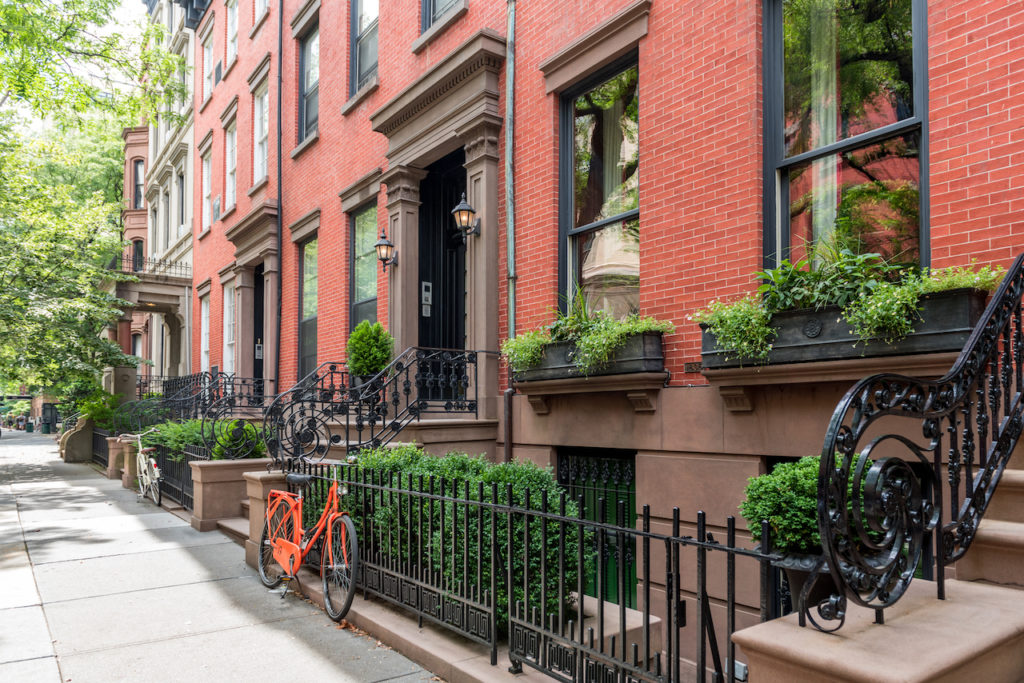
As you begin your search for NYC apartments, there’s an important distinction you need to be aware of: no-fee apartments vs. fee-based (broker fee) apartments. Although this particularly applies to rentals in Manhattan, understanding the difference is still important if you’re looking for a new apartment in Brooklyn, Queens, or elsewhere in the New York area.
For a brief moment, starting on February 4, 2020, broker’s fees became a thing of the past when a New York law banned them. Just a few days later, a judge temporarily blocked that ban, allowing real estate brokers to continue charging fees to renters. Let’s break down what broker fees and how to get around them.
No-Fee Apartments in NYC
No-fee apartments are usually listed on rental search sites like Zumper directly by landlords and property managers. “No-fee” means that you are not on the hook to pay a professional fee to a real estate agent or broker because the landlord has posted the listing themselves. In NYC, these professionals – or brokers – charge as little as one month, and as much as two months’ rent for their services. Since there’s no professional sitting between you and the landlord in a “no-fee” listing, you will be working directly with your future landlord and saving a lot of money.
Why would you ever want to pay a professional broker fee? Sounds like a no brainer, right?
Yes, and no.
All things considered, you’re likely to save money by renting a no-fee apartment. With the average rents in NYC at $3,000 for a 1-bedroom apartment, you’re saving somewhere between $3,000 and $6,000 in broker fees by finding a no-fee listing.
Some no-fee landlords, however, recognize that you’re not paying a broker fee, and they’ll increase their rent prices. Instead of offering you a $3,000 per month deal, they might offer you a one-year lease at $3,500 per month, which – over the course of the 12-month lease – would cost you an extra $6,000, or the equivalent of a broker fee. Not every landlord will do this, but just be sure to compare the no-fee rentals you find to other comparable apartments in the neighborhood.
Popular NYC Neighborhoods with No-Fee Apartments

Manhattan:
- Upper West Side: 1,329 no-fee apartments for rent
- Upper East Side: 1,557 no-fee apartments for rent
- Hell’s Kitchen: 1,312 no-fee apartments for rent
- East Village: 527 no-fee apartments for rent
- Chelsea: 448 no-fee apartments for rent
Brooklyn:
- Brooklyn Heights: 87 no-fee apartments for rent
- Bedford-Stuyvesant: 856 no-fee apartments for rent
- Clinton Hill: 112 no-fee apartments for rent
- Bushwick: 650 no-fee apartments for rent
- Williamsburg: 728 no-fee apartments for rent
- Fort Greene: 58 no-fee apartments for rent
Fee-Based Apartments in NYC

Unless a rental listing is classified as ‘“no-fee”, it usually carries a broker’s fee. Broker fees are incurred by rental listings where a landlord or property manager has hired a broker to market their listing and choose the best tenant.
In NYC and a small handful of other cities like Boston and Chicago, the renter is on the hook to pay the broker fee, not the landlord.
It wasn’t always this way, though. The market has actually see-sawed back and forth from renters paying, to landlords paying, and then back to renters again. The switch back to renters paying happened a few years ago when the NYC rental market turned hot again, and that’s where we are today.
Broker fees will set you back anywhere between 1-2 months’ rent and are paid upfront when you sign your lease. So, to put this in context, you’ll be paying anywhere between 8%-15% of your annual rent, plus a security deposit, up front.
Are broker fees negotiable?

Sometimes. You legally within your rights to try and negotiate the fee when you start searching. Many brokers will try and lock you into an exclusive search with them. If they try to do this and you’re tempted to go with another broker, you should absolutely try to bargain them down to a one month’s rent fee, or even less, if possible. Don’t be dismayed if they don’t budge; this is just the way the hustle works in NYC, and there are always no-fee listings around the corner.
Overall, rentals with fees will set you back some cash upfront. If you’re moving to NYC for work, ask your employer to cover this as part of your relocation package. And always remember that, despite the fact that fee-based rentals are a majority in the city, you can always check out no-fee NYC apartments for rent and work with landlords who’ve decided to list directly to you, the renter.



